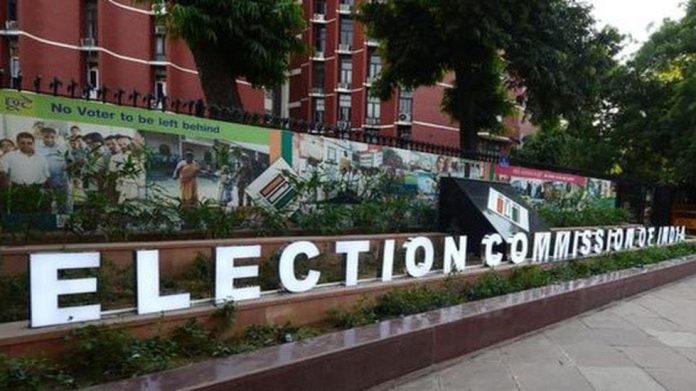- At the outset, let us all raise a toast to the Election Commission of India (ECI) for not only ensuring a fair and peaceful election every single time but also ushering in a sense of authenticity in the way the democratic process is conducted leading to well-deserved praise from different quarters. As you are aware, ECI is tasked to carry out elections to state assemblies and the Parliament as and when the dates are due. Over the years, ECI has been at the forefront by undertaking mammoth endeavors to conduct elections without disappointing all the concerned. No wonder, Indian citizens espouse lots of respect towards ECI for introducing several measures that have gone a long way in ensuring the electoral process is not compromised.

PC: IAS Express
- One of the measures introduced to ensure a level playing field for all the contesting candidates is the model code of conduct (MCC). The moot point to ponder over here is whether MCC in its present avatar deserves a relook to further tighten the electoral process. Losing political parties in India are fond of even questioning the authenticity of the electronic voting machines when the result goes against them. Despite several challenges encountered along the way, ECI has prodded along with a determined focus to deliver on the expected lines. Note that the recently held state poll campaigning showed how tough ECI’s job will be when it oversees the mother of all elections i.e. the Lok Sabha polls in 2024.
- Of course, voting for five state assemblies is over and the results will be out when you read this article. Naturally, weeks since polls were announced on October 9 saw intense and oftentimes down-and-dirty campaigns. Increasingly, parties are pushing the boundaries of fair conduct. New ways and means are found to dodge the MCC, the do’s and don’ts for parties, candidates, and government officials. If MCC’s spirit lies in its appeal for a minimum standard of conduct and behavior, its flesh and blood are the rules for the party in power – for governments, ministers, and civil servants regarding state schemes, mixing political and official visits, use of state transport, etc. Yet, with every election, MCC is under more strain.

PC: TOI
- For one, the 48-hour silence period is obsolete in the age of internet and social media. Politicians grounded for toxic remarks in physical rallies use their online presence to press the same message. Given MCC kicks in once the poll schedule is announced, there was little for EC to do when a party announced some candidates on August 17, sidestepping fair practice. There are hardly any enforceable ways to ensure incumbent MLAs recontesting polls did not mix the official with the political. Yes, many will violate MCC as general election campaigning gets underway. Indeed, using an existing welfare scheme as a campaign tool is wrong. MCC must be seen to be fairly ensuring fair practice. ECI has a tough job, and overall, it does a great job. 2024 will be a big challenge for it. But some tightening of the MCC should be seriously considered.






